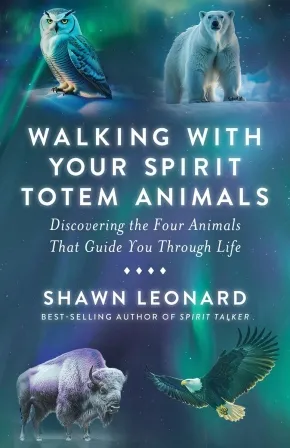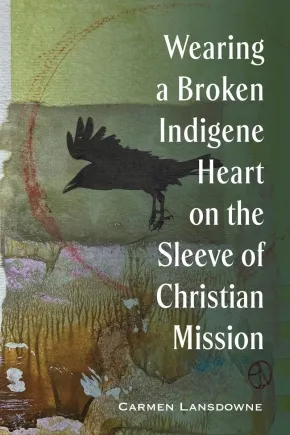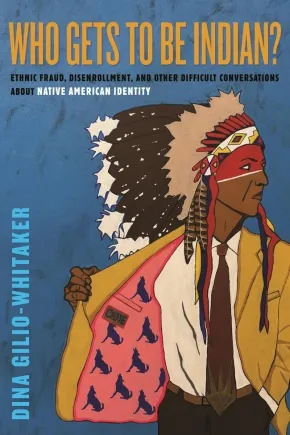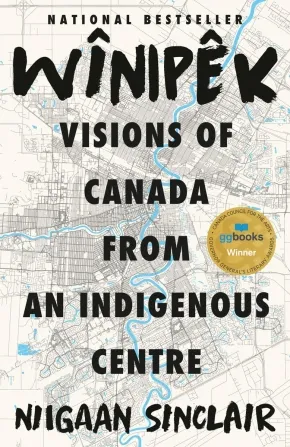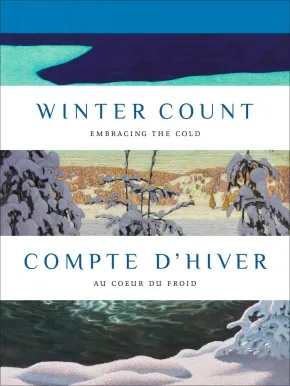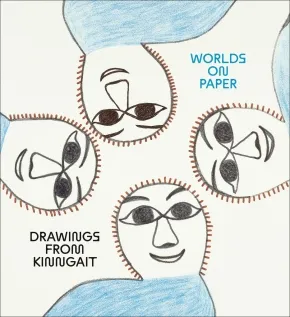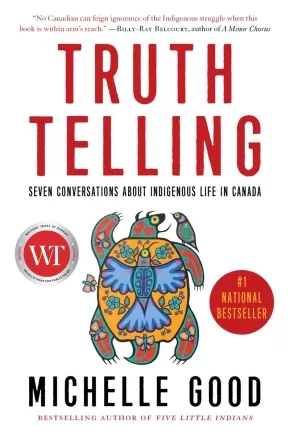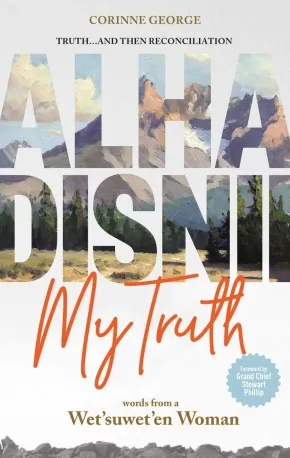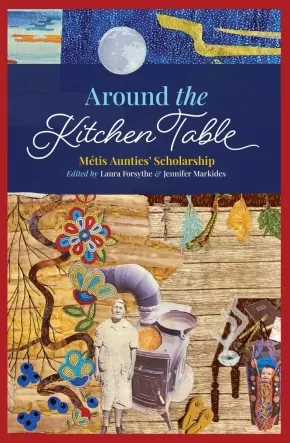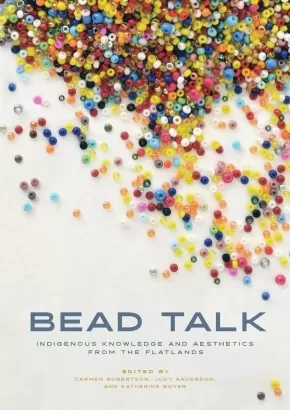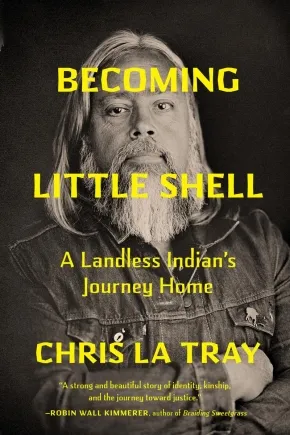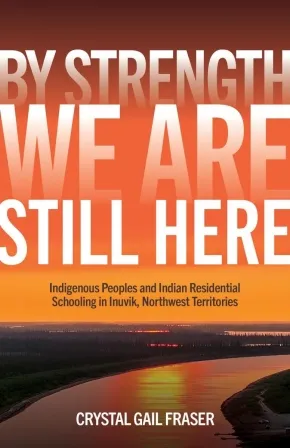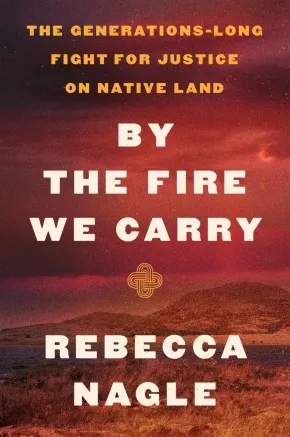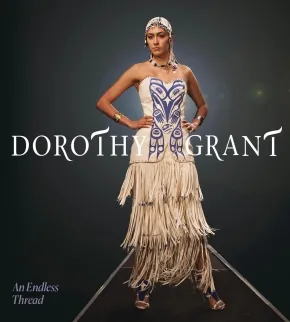
Social and Cultural Studies
31
-
45
of
321 Results;
Sort By
Go To
of 22
Walking with Your Spirit Totem Animals: Discovering the Four Animals That Guide You Through Life
$23.99
Format:
Paperback
Text Content Territories:
Indigenous Canadian; First Nations; Mi'kmaq (Mi'gmaq);
Reading Level: N/A
ISBN / Barcode: 9781401997250
Synopsis:
Synopsis:
From Shawn Leonard, Indigenous medium and host of Spirit Talker, comes a guide for assembling your unique team of spirit totem animal guides to be your personal guides through your life.
We are deeply connected to the animal nation, and through the four stages of life—Childhood, Youth, Adulthood, and Elderhood—there are four sacred animal totems that guide us energetically using their sacred medicine.
In Walking With Your Spirit Totem Animals, Mi’kmaq medium and host of Spirit Talker Shawn Leonard invites readers on a profound journey into the mystical world of animal totems. His insightful guide reveals how specific animal totems, that are personal to each and every one of us, support us. Leonard intertwines personal anecdotes with spiritual teachings, illustrating how these animal guides have appeared in his own life—his totems are Buffalo/Bison, Eagle, Polar Bear, and Owl—and provided wisdom at each stage.
The book includes comprehensive discussions on the Medicine Wheel and practical tools such as prayers and meditations to help readers connect with their own animal totems. Leonard also incorporates reflections on the connection between pets and their spiritual roles, messages revealed through animal dreams, and encounters with the animal nation in the astral realm.
Additional Information
208 Pages | 5.63 x 8.50" | b&w interior | Paperback
Wearing a Broken Indigene Heart on the Sleeve of Christian Mission
$34.00
Format:
Paperback
Text Content Territories:
Indigenous Canadian;
Reading Level: N/A
ISBN / Barcode: 9781987986181
Synopsis:
Synopsis:
The Indigenous intercultural theology proposed in this groundbreaking work by Dr. Carmen Lansdowne seeks to reframe many of the (often unspoken) assumptions about the field of Christian mission. Dr. Lansdowne searches out answers to the question: If Indigenous hearts are broken by Christianity, what is it in Christian theology that is life giving at all? This book will be essential reading for lay and professional theologians and church leaders; it is also a key contribution to the field of Indigenous Studies, especially as a study of Indigenous-Christian encounter.
Additional Information
256 pages | 6.00" x 9.00" | Paperback
Who Gets to Be Indian?: Ethnic Fraud, Disenrollment, and Other Difficult Conversations About Native American Identity
$39.95
Format:
Hardcover
Text Content Territories:
Indigenous American; Native American;
Reading Level: N/A
ISBN / Barcode: 9780807044964
Synopsis:
Synopsis:
An investigation into how Native American identity became a commodity, from cultural appropriation to ethnic fraud to disenrollment
Settler capitalism has been so effective that the very identities of Indigenous people have been usurped, misconstrued, and weaponized. In Who Gets to Be Indian?, scholar and writer Dina Gilio-Whitaker (Colville Confederated Tribes) explores how ethnic fraud and the commodification of Indianness has resulted in mass confusion about what it means to be Indigenous in the United States.
As an entry point to the seemingly intractable problem of ethnic fraud, Gilio-Whitaker critically looks to the film industry, including a case study of Sacheen Littlefeather, who is most known as the Native American woman that rejected an Oscar on behalf of Marlon Brando in 1973—though later revealed, she was not who she said she was. Gilio-Whitaker argues that this pretendian phenomenon originated in Southern California when the United States was forcing assimilation of Indians into white America culturally, but also into its capitalist economic system. With Indianness becoming a marketized commodity in the Hollywood film business, the field became open to anyone who could convincingly adopt an Indian persona.
Deeply researched using socio-historical analysis, Gilio-Whitaker offers insights from her own experiences grappling with identity to provide clarity and help readers understand how the commodification of Indianness have ultimately left many people of legitimate American Indian heritage to be disconnected from their tribes. Personal and compelling, Gilio-Whitaker takes settler capitalism to task and helps us better understand how we got here in order to counteract the abuses of pretendianism and disenrollment.
Reviews
“This incendiary j’accuse isn’t afraid to name names.”—Publishers Weekly, Starred Review
“With clarity and conviction, Dina Gilio-Whitaker exposes what’s at stake for Native people when Indianness becomes a commodity. A sharp, personal, and urgent look at the high cost for actual Native people in a system built to exploit them at every turn.”—Kim TallBear, author of Native American DNA: Tribal Belonging and the False Promise of Genetic Science
“Indigeneity is caught between truth tellers and tricksters. With abiding concern for tribal nationhood, Dina Gilio-Whitaker boldly espouses our truths while confronting the tricksters among us. Indigenous America needs more truth tellers like her and books like this.”—Gabe Galanda, Indigenous rights attorney
“Dina Gilio-Whitaker’s Who Gets to Be Indian? tackles the problem of the commodification of Native identity at a crucial moment in American history. With incisive analysis, Gilio-Whitaker reveals how settler capitalism has distorted and exploited Indigenous identities and exposes the roots of folks pretending to be Native and its harms to Native communities. This book is a call to action and a vital tool for understanding how we can protect Indigenous people. A must-read for anyone seeking to confront the complexities of Native identity, sovereignty, and power in America.”—Liza Black, author of Picturing Indians: Native Americans in Film, 1941–1960
“A fresh and unflinching look into the rise of pretendianism—when it became normalized for Hollywood to grant Native American identities to various grifters. Dina Gilio-Whitaker’s courageous and original analysis will challenge readers, Indigenous or not, to think deeply about the nature of settler colonialism today.”—Darryl Leroux, author of Distorted Descent: White Claims to Indigenous Identity
Additional Information
280 pages | 6.22" x 9.30" | Hardcover
Wînipêk: Visions of Canada from an Indigenous Centre (PB)
$24.00
Format:
Paperback
Text Content Territories:
Indigenous Canadian; First Nations; Anishinaabeg;
Reading Level: N/A
ISBN / Barcode: 9780771099199
Synopsis:
Synopsis:
From ground zero of this country's most important project: reconciliation
Niigaan Sinclair has been called provocative, revolutionary, and one of this country's most influential thinkers on the issues impacting Indigenous cultures, communities, and reconciliation in Canada. In his debut collection of stories, observations, and thoughts about Winnipeg, the place he calls "ground zero" of Canada's future, read about the complex history and contributions of this place alongside the radical solutions to injustice and violence found here, presenting solutions for a country that has forgotten principles of treaty and inclusivity. It is here, in the place where Canada began—where the land, water, people, and animals meet— that a path "from the centre" is happening for all to see.
At a crucial and fragile moment in Canada's long history with Indigenous peoples, one of our most essential writers begins at the centre, capturing a web spanning centuries of community, art, and resistance.
Based on years' worth of columns, Niigaan Sinclair delivers a defining essay collection on the resilience of Indigenous peoples. Here, we meet the creators, leaders, and everyday people preserving the beauty of their heritage one day at a time. But we also meet the ugliest side of colonialism, the Indian Act, and the communities who suffer most from its atrocities.
Sinclair uses the story of Winnipeg to illuminate the reality of Indigenous life all over what is called Canada. This is a book that demands change and celebrates those fighting for it, that reminds us of what must be reconciled and holds accountable those who must do the work. It's a book that reminds us of the power that comes from loving a place, even as that place is violently taken away from you, and the magic of fighting your way back to it.
Awards
- Winner of the 2024 Governor General's Literary Award for Nonfiction.
Additional Information
384 pages | 5.14" x 7.92" | b&w photos throughout | Paperback
Winter Count | Compte d'hiver: Embracing the Cold | Au cœur du froid
$55.00
Format:
Paperback
Text Content Territories:
Indigenous Canadian; First Nations;
Reading Level: N/A
ISBN / Barcode: 9781773104928
Synopsis:
Synopsis:
Winter Count draws inspiration from the Plains First Nations practices of recording significant events each winter, a visual reminder that helps structure histories and traditions passed down to future generations. This handsome volume explores how winter has long shaped Indigenous, Canadian settler, and northern European art, uniting different cultural perspectives through such diverse topics as storytelling, effects of light, physical adaptation, and community and isolation.
Presenting a selection of works spanning from the early 19th century to the present day — including artists such as Kenojuak Ashevak, J.E.H. MacDonald, Claude Monet, Kent Monkman, Megan Musseau, and Jin-me Yoon — Winter Count features approximately 170 plates, along with illustrated essays by curators from the National Gallery of Canada. The result is a book that invites readers to see winter anew — not as a season to be endured, but as a source of invention, connection, and mutual respect across time and place.
Educator Information
Dual-language: English and French
Additional Information
304 pages | 9.00" x 12.00" | Paperback
Worlds on Paper: Drawings from Kinngait
$65.00
Artists:
Format:
Hardcover
Text Content Territories:
Indigenous Canadian; Inuit;
Reading Level: N/A
ISBN / Barcode: 9781773272580
Synopsis:
Synopsis:
A major publication, Worlds on Paper: Drawings from Kinngait features over 150 never-before-seen original drawings by internationally renowned Inuit artists from Kinngait (Cape Dorset).
In 1990, the celebrated printmaking studio in Kinngait (Cape Dorset) transferred their complete drawings archive to the McMichael Canadian Art Collection in Ontario for safekeeping. The McMichael recently completed the digitization of this invaluable treasury of works, making it accessible to communities across the Arctic as well as to the wider public.
Worlds on Paper, an exhibition led by Inuit curator Emily Laurent Henderson, explores the profound impact and importance of drawing in Kinngait, not just as a precursor to printmaking, but as a vital and enduring discipline in its own right. This groundbreaking Inuit-led publication includes essays by Susan Aglukark, Kyle Aleekuk, Mark Bennett, Napatsi Folger, Jamesie Fournier, Janice Grey, Jonas Laurent Henderson, Jessica Kotierk, Nicole Luke, Malayah Maloney, Aghalingiak Ohokannoak, Jocelyn Piirainen, Krista Ulukuk Zawadski, and others, and explores the transition from traditional life on the land to 21st century community living.
Kinngait is renowned internationally for printmaking but an exploration of the drawings archive reveals careers previously overlooked while also allowing established artists to be seen in a new light. Dreaming Forward provides a richer understanding of the creativity that blossomed in Kinngait over four decades, as the print making studio rose to international renown. This publication animates the legacy of Kinngait Studio and its role in generating, nurturing, and promoting artists who continue to challenge expectations and provoke fresh understandings.
Additional Information
320 pages | 10.00" x 11.00" | 200 colour artwork and archival photographs | Hardcover
FLASH SALE! Truth Telling: Seven Conversations about Indigenous Life in Canada (PB)
$15.75 $21.00
Format:
Paperback
Text Content Territories:
Indigenous Canadian;
Reading Level: N/A
ISBN / Barcode: 9781443467841
Synopsis:
Synopsis:
A bold, provocative collection of essays exploring the historical and contemporary Indigenous experience in Canada.
With authority and insight, Truth Telling examines a wide range of Indigenous issues framed by Michelle Good’s personal experience and knowledge.
From racism, broken treaties, and cultural pillaging, to the value of Indigenous lives and the importance of Indigenous literature, this collection reveals facts about Indigenous life in Canada that are both devastating and enlightening. Truth Telling also demonstrates the myths underlying Canadian history and the human cost of colonialism, showing how it continues to underpin modern social institutions in Canada.
Passionate and uncompromising, Michelle Good affirms that meaningful and substantive reconciliation hinges on recognition of Indigenous self-determination, the return of lands, and a just redistribution of the wealth that has been taken from those lands without regard for Indigenous peoples.
Truth Telling is essential reading for those looking to acknowledge the past and understand the way forward.
Reviews
“With blistering clarity, Michelle Good exposes the contradictions at the heart of Canada, but also imagines beyond them, setting out a specific vision for an Indigenous future governed by us. Good’s essays, woven with personal testimony, are deeply researched and traverse great swaths of history and policy; they are also very rousing and moving. No Canadian can feign ignorance of the Indigenous struggle when this book is within arm’s reach.” — Billy-Ray Belcourt, author of A Minor Chorus
"Good reminds us what the truth in Truth and Reconciliation actually requires of all of us: Indigenous peoples and Canadians. Addressing storytelling and historical myth-making, this book would have changed my nineteen-year-old world had it been available and rendered normative for my teachers. Good’s work is formidable, elemental and reminiscent of Cardinal’s Unjust Society. This work, should be required reading for every Canadian. Smart, generous and insightful. 'There is no such thing as Crown Land. It is all Indigenous land.' Good writes. This truth resonates. Serves notice: it is time." — Dr. Tracey Lindberg, Law Professor, author of Birdie
“Truth Telling is at once heartfelt, instructive, and authentic, expertly exploring the key issues that have shaped the Indigenous reality in Canada.… This collection is an indispensable resource.” — Waubgeshig Rice, author of Moon of the Crusted Snow
“As Canadians search for a national approach to reconciliation... this book reminds us of how we arrived at this moment.…[and] is the kind of reference that will help us navigate our fraught journey.” — Dr. Eldon Yellowhorn, Professor of Indigenous Studies, Simon Fraser University
“Truth Telling is a powerful, urgent, and necessary book that gets to the heart of true reconciliation and maps a course for achieving it. Bridging personal stories and lived experiences with sharp historical analysis, Michelle Good’s writing is both beautiful and heartbreaking. Honest, forthright, and powerful, Truth Telling offers insights and analysis that every policymaker and politician—indeed, any person who calls Canada “home”— can and must read. Urgently.” — 2023 Balsillie Prize for Public Policy Jury
Educator Information
Truth Telling is a collection of essays about the contemporary Indigenous experience in Canada.
Additional Information
232 pages | 5.00" x 7.50" | Paperback
Alha Disnii - My Truth: Words from a Wet'suwet'en Woman
$19.99
Format:
Paperback
Text Content Territories:
Indigenous Canadian; First Nations; Dene; Dakelh (Carrier); Wet’suwet’en; Gitxsan (Gitksan);
ISBN / Barcode: 9781778540417
Synopsis:
Synopsis:
My name is Corinne George. I am Wet’suwet’en with Gitksan lineage from the Gidimt’en (Bear) Clan. This is my truth, and through sharing my truth, I strive for ongoing healing and to continue the journey of reconciliation. As a Wet’suwet’en woman born and raised on what is now known as the “Highway of Tears,” it was not uncommon to receive inferior treatment. There were even times when I was overtly targeted. It has been very common for people to outwardly refuse to acknowledge my existence as a human being. I was always afraid to share my truth because I did not want to be stigmatized. I am the daughter of a residential school survivor and a WWII veteran. As a result of colonization, I have encountered incredible levels of trauma. I need to acknowledge and speak my truth. As I share my pain and experiences, I have gathered self-awareness and every time I speak about my trauma, I heal a little bit more. I do not deserve to be treated like I do not exist. Despite the historical impacts of colonization and trauma, my connections to my ancestral ways and my identity have been critical. This is how I survived and how I strive to thrive.
Educator Information
Recommended for ages 16+.
Additional Information
128 pages | 5.10" x 7.50" | Paperback
Around the Kitchen Table: Métis Aunties' Scholarship
$27.95
Editors:
Format:
Paperback
Text Content Territories:
Indigenous Canadian; Métis;
Reading Level: N/A
ISBN / Barcode: 9781772840735
Synopsis:
Synopsis:
Honouring the scholarship of Métis matriarchs
While surveying the field of Indigenous studies, Laura Forsythe and Jennifer Markides recognized a critical need for not only a Métis-focused volume, but one focused on the contributions of Métis women. To address this need, they brought together work by new and established scholars, artists, storytellers, and community leaders that reflects the diversity of research created by Métis women as it is lived, considered, conceptualized, and re-imagined.
With writing by Emma LaRocque and other pioneers of Métis studies, Around the Kitchen Table looks beyond the patriarchy to document and celebrate the scholarship of Métis women. Focusing on experiences in post-secondary environments, this collection necessarily traverses a range of methodologies. Spanning disciplines of social work, education, history, health care, urban studies, sociology, archaeology, and governance, contributors bring their own stories to explorations of spirituality, material culture, colonialism, land-based education, sexuality, language, and representation. The result is an expansive, heartfelt, and accessible "community of Métis thought," as articulated by Markides.
Reverent and revelatory, this collection centres the strong aunties and grandmothers who have shaped Métis communities, culture, and identities with teachings shared in classrooms, auditoriums, and around the kitchen table.
Reviews
"Inspiring, healing, and future-facing, this long overdue book gives us valuable new insights into the histories and identities of Métis people." — Kim Anderson
"Around the Kitchen Table is an exciting and thought-provoking contribution to the fields of Métis Studies and Indigenous feminism. Reading this book is like sitting down to visit with a strong cup of tea and your favourite aunties. It will inspire readers to think about matriarchy in new and exciting ways, teaching us what it means to be Métis women, good relatives, and innovative scholars." — Cheryl Troupe
Educator Information
Other contributors: Jennifer Adese, Christi Belcourt, Hannah Bouvier, Rita Bouvier, Vicki Bouvier, Robline Davey, Leah Marie Dorion, Marilyn Dumont, Nicki Ferland, Chantal Fiola, Lucy Fowler, Chelsea Gabel, Janice Cindy Gaudet, Emily Haines, Shalene Jobin, Emma LaRocque, Amanda LaVallee, Lynn Lavallee, Avery Letendre, Kirsten Lindquist, Yvonne Poitras Pratt, Angela Rancourt, Lisa Shepherd, Allyson Stevenson, Kisha Supernant, Caroline Tait, Angie Tucker, Dawn Wambold
Table of Contents
Contributors
Foreword by Caroline Tait
The Work of Métis Women: An Introduction – Jennifer Markides
Part One: Identity
1. Brown Names – Marilyn Dumont
2. We Know Ourselves – Lisa Shepherd
3. Kaa-waakohtoochik: The Ones Who Are Related to Each Other – Vicki Bouvier
4. The Roots Always Remain: Reconnecting to Our Communities in the Twenty-First Century – Angie Tucker
5. For the Love of Place―Not Just Any Place: Selected Metis Writings – Emma Larocque
6. Coming Home through Métis Research – Allyson Stevenson
7. Valuing Métis Identity in the Prairies through a “5 R” Lens: Our Digital Storytelling Journey – Chelsea Gabel and Amanda LaVallee
8. Prenatal/Postpartum Ceremonies and Parenting as Michif Self-Determination – Chantal Fiola
9. Medicine Women – Jennifer Adese
10. Lii Michif – Lisa Shepherd
Part Two: Women in the Academy
11. Metis Women as Contributors to the Academy Despite Colonial Patriarchy – Laura Forsythe
12. Connecting to Our Ancestors Through Archaeology: Stories of Three Métis Women Academics – Kisha Supernant, Dawn Wambold, and Emily Haines
13. Métis Women Educating in the Academy – Yvonne Poitras Pratt and Jennifer Markides
14. Structural and Lateral Violence Toward Metis Women in the Academy – Lynn Lavallee
Part Three: Research Methodology
15. Métis Research and Relationality: Auntie Governance, the Visiting Way, and Kitchen Table Reflections – Kirsten Lindquist, Shalene Jobin, Avery Letendre
16. Lii Taab di Faam Michif/Metis Women’s Kitchen Table: Practicing Our Sovereignty – Cindy Gaudet and Angela Rancourt
17. Wahkotowin: An Approach to Indigenous (Land-Based) Education – Nicki Ferland
18. Kaa-natoonamaan taanshi chi-ishi-natoonikeeyaan: My Search for how to Research Things (in a Queer Métis paradigm) – Lucy Fowler
19. Differentiating Métis Feminism – Robline Davey
20. Celebrating the Wisdom of Our Métis Matriarchs: Sewing Our Wellness All Together—Kood Toot Aansamb – Leah Dorion, Janice Cindy Gaudet, Hannah Bouvier
21. if the land could speak – Rita Bouvier
Bibliography
Art – Christi Belcourt
Additional Information
200 pages | 6.00" x 9.00" | index, bibliography | Paperback
Bead Talk: Indigenous Knowledge and Aesthetics from the Flatlands
$27.95
Format:
Paperback
Text Content Territories:
Indigenous Canadian; First Nations; Métis;
Reading Level: N/A
ISBN / Barcode: 9781772840650
Synopsis:
Synopsis:
Sewing new understandings.
Indigenous beadwork has taken the art world by storm, but it is still sometimes misunderstood as static, anthropological artifact. Today’s prairie artists defy this categorization, demonstrating how beads tell stories and reclaim cultural identity. Whether artists seek out and share techniques through YouTube videos or in-person gatherings, beading fosters traditional methods of teaching and learning and enables intergenerational transmissions of pattern and skill.
In Bead Talk, editors Carmen Robertson, Judy Anderson, and Katherine Boyer gather conversations, interviews, essays, and full-colour reproductions of beadwork from expert and emerging artists, academics, and curators to illustrate the importance of beading in contemporary Indigenous arts. Taken together, the book poses and responds to philosophical questions about beading on the prairies: How do the practices and processes of beading embody reciprocity, respect, and storytelling? How is beading related to Indigenous ways of knowing? How does beading help individuals reconnect with the land? Why do we bead?
Showcasing beaded tumplines, text, masks, regalia, and more, Bead Talk emphasizes that there is no one way to engage with this art. The contributors to this collection invite us all into the beading circle as they reshape how beads are understood and stitch together generations of artists.
Reviews
“An evocative, aesthetically gorgeous book that is rich in knowledge, relationality, and experience. Curated with care, rooted in artistic practice and lived experience, and embodying a polyvocal, collaborative spirit, it immerses the reader in the world of Indigenous beadwork on the prairies. Bead Talk carries teachings about decolonial love, healing and medicine, cultural knowledges, political and theoretical modes of action, gendered experience, and more. I can’t think of any other book like this—it is a gift!” — Aubrey Hanson
Educator Information
Contributors: Ruth Cuthand, Dayna Danger, Sherry Farrell Racette, Marcy Friesen, Felicia Gay, Franchesca [Fran] Hebert-Spence, Audie Murray, Cathy Mattes.
Table of Contents
Foreword – Brenda Macdougall
Who We Are
Introduction – Carmen Robertson, Judy Anderson, and Katherine Boyer
Part I: Conversations
1. Mentoring/Beading – Ruth Cuthand and Marcy Friesen
2. mîkisistahêwin (bead medicine) – Judy Anderson and Audie Murray
3. Parallel Lines Move Along Together: A Beaded Line that Connects Me to You – Katherine Boyer and Dayna Danger
4. The Power of Gathering: Revisiting the Seeds of Ziigimineshin – Franchesca Hebert-Spence and Carmen Robertson
5. Beads, Blood, and Curating Ruth Cuthand’s Art – Felicia Gay and Carmen Robertson
Part II: Essays
6. “Until We Bead Again”: The BU Beading Babe and Embodying Lateral Love and Generous Reciprocity – Cathy Mattes
7. Visiting Kin: Indigenous Flatland Beading Aesthetics – Carmen Robertson
8. If the Needles Don’t Break and the Thread Doesn’t Tangle: Beading Utopia – Sherry Farrell Racette
Afterword: Spreading the Bead Love Far and Wide
Additional Information
240 pages | 6.00" x 8.50" | 62 colour illustrations | Paperback
Becoming Little Shell: A Landless Indian's Journey Home
$42.95
Format:
Hardcover
Text Content Territories:
Indigenous American; Native American; Anishinaabeg; Ojibwe (Chippewa); Little Shell Tribe of Chippewa Indians ;
Reading Level: N/A
ISBN / Barcode: 9781571313980
Synopsis:
Synopsis:
Growing up in Montana, Chris La Tray always identified as Indian. Despite the fact that his father fiercely denied any connection, he found Indigenous people alluring, often recalling his grandmother’s consistent mention of their Chippewa heritage.
When La Tray attended his grandfather’s funeral as a young man, he finally found himself surrounded by relatives who obviously were Indigenous. “Who were they?” he wondered, and “Why was I never allowed to know them?” Combining diligent research and compelling conversations with authors, activists, elders, and historians, La Tray embarks on a journey into his family’s past, discovering along the way a larger story of the complicated history of Indigenous communities—as well as the devastating effects of colonialism that continue to ripple through surviving generations. And as he comes to embrace his full identity, he eventually seeks enrollment with the Little Shell Tribe of Chippewa Indians, joining their 158-year-long struggle for federal recognition.
Both personal and historical, Becoming Little Shell is a testament to the power of storytelling, to family and legacy, and to finding home. Infused with candor, heart, wisdom, and an abiding love for a place and a people, Chris La Tray’s remarkable journey is both revelatory and redemptive.
Reviews
“La Tray’s pride and conviction will have readers eager not only to learn more, but to take action. A brilliant contribution to the canon of Native American literature.”—Kirkus Reviews, starred review
“[A] gripping debut memoir. [. . .] La Tray’s crystalline prose and palpable passion for spreading Indigenous history bolster his account. Readers will be fascinated.”—Publishers Weekly
"Heartbreaking, infuriating, and remarkable, Becoming Little Shell is a memoir that’s packed with historical details,transcending and amplifying a personal quest to understand a family’s past."—Foreword Reviews, starred review
“Smart, emotional, and bracingly honest, La Tray is a powerful storyteller who should have significant appeal.”—Booklist
“I’m in awe of Chris La Tray’s storytelling. Becoming Little Shell creates a multilayered narrative from threads of personal, family, community, tribal, and national histories. Together they make a story as strong and beautiful as a Metis sash—a story of identity, kinship, and the journey toward justice.”—Robin Wall Kimmerer, author of Braiding Sweetgrass
“Chris La Tray is a powerful voice—a force of nature, really—to guide us through the swirling confluence of Native and white worlds, both past and present. Becoming Little Shell is the American story of our era—tracing the arc of its author brought up in the white world before discovering his roots as an original inhabitant of this continent.”—Peter Stark, author of Gallop Toward the Sun
“Indigenous identity can be complicated, and Becoming Little Shell compels us into the thick of it—Native people dispossessed of not just land but recognition; blood quantum laws originally crafted to complete a genocide and still wreaking havoc in identity debates today; racism that drove many Native people to disassociate from their families; and descendants, like La Tray, who have found their way back, fighting for the reconnection of their communities and for the observance of their very existence. La Tray is a loving, discerning, curious, funny, and generous guide. This is a beautiful, big-hearted book.”—Sierra Crane Murdoch, author of Yellow Bird
“Becoming Little Shell is a moving, deeply felt, and incredibly detailed account of Chris La Tray’s search for his origins among the Métis, Pembina, and Little Shell Tribe of Chippewa Indians. Combining memoir, history, interviews, and travel, La Tray gives us nothing less than the history of a people in the form of an absorbing and emotionally searing memoir. This book will, without a doubt, become a classic in Native American literature. Must read.”—David Treuer, author of The Heartbeat of Wounded Knee
“What I appreciate so much about Chris La Tray’s writing on Indigenous identity and history is the wit, clarity, and integrity embodied in every word. Becoming Little Shell beautifully encompasses a journey that we can all learn from, a journey toward asking better questions about land, belonging, and connection, and through this book La Tray epitomizes historian, poet, and teacher. Full of Indigenous history, personal stories, and the complex dance between the two, La Tray reminds us that the journey of finding ourselves and making sense of the way colonialism plays out around us is an essential part of being human. Please read this book. You’ll be so glad you did.”—Kaitlin B. Curtice, author of Living Resistance
Additional Information
320 pages | 6.00" x 9.00" | Hardcover
By Strength, We Are Still Here: Indigenous Peoples and Indian Residential Schooling in Inuvik, Northwest Territories
$27.95
Format:
Paperback
Text Content Territories:
Indigenous Canadian; First Nations; Dene; Dinjii Zhuh (Gwich'in);
Reading Level: N/A
ISBN / Barcode: 9781772840940
Synopsis:
Synopsis:
The first comprehensive study of Indian residential schools in the North.
In this ground-breaking book, Crystal Gail Fraser draws on Dinjii Zhuh (Gwich'in) concepts of individual and collective strength to illuminate student experiences in northern residential schools, revealing the many ways Indigenous communities resisted the institutionalization of their children.
After 1945, federal bureaucrats and politicians increasingly sought to assimilate Indigenous northerners--who had remained comparatively outside of their control--into broader Canadian society through policies that were designed to destroy Indigenous ways of life. Foremost among these was an aggressive new schooling policy that mandated the construction of Grollier and Stringer Halls: massive residential schools that opened in Inuvik in 1959, eleven years after a special joint committee of the House of Commons and the Senate recommended that all residential schools in Canada be closed.
By Strength, We Are Still Here shares the lived experiences of Indigenous northerners from 1959 until 1982, when the territorial government published a comprehensive plan for educational reform. Led by Survivor testimony, Fraser shows the roles both students and their families played in disrupting state agendas, including questioning and changing the system to protect their cultures and communities.
Centring the expertise of Knowledge Keepers, By Strength, We Are Still Here makes a crucial contribution to Indigenous research methodologies and to understandings of Canadian and Indigenous histories during the second half of the twentieth century.
Reviews
"By Strength, We Are Still Here demonstrates an intergenerational process of love and strength. Fraser's methodology, theory work, and incredibly thorough research are in and of themselves lifegiving, vital, and serve as an example to all other scholars." — Omeasoo Wahpasiw
"By integrating survivor testimony with archives, Fraser points towards the Indigenous resistance revealed in the ellipses and gaps in the colonial record. This is very important work." — Chris Trott
Educator Information
Table of Contents
Glossary
A Note on Region and Terminology
Introduction—By Strength, We Are Still Here.
Chapter One—“If anyone is going to jail for this, I’m taking it”: Our Relatives Speak
- Education in Nanhkak Thak Before the Arrival of Settlers
- Indian Day and Residential Schools
- The Construction of Inuvik
Chapter Two—Calls Grow. “Listen! It’s louder now. From here, from there. Indian voices, Métis voices, demanding attention, demanding equality!"
Chapter Three—“The long process of tearing our family apart”
Chapter Four—“Making us into nice white kids.”
Chapter Five—“The hazards that can result from too permissive or undisciplined sexual behaviour.”
Chapter Six—“To find that inner peace, it was so important for us all.”
Chapter Seven—“These are our children and they are very precious to us.”
Conclusion—“We knew the value of strength.”
Appendix A
Endnotes
Additional Information
320 pages | 6.00" x 9.00" | 69 b&w illustrations, index, bibliography | Paperback
By the Fire We Carry: The Generations-Long Fight for Justice on Native Land
$39.50
Format:
Hardcover
Text Content Territories:
Indigenous American; Native American; Muscogee (Creek); Cherokee; Cherokee Nation (Cherokee Nation of Oklahoma);
Reading Level: N/A
ISBN / Barcode: 9780063112049
Synopsis:
Synopsis:
A powerful work of reportage and American history that braids the story of the forced removal of Native Americans onto treaty lands in the nation’s earliest days, and a small-town murder in the ‘90s that led to a Supreme Court ruling reaffirming Native rights to that land over a century later.
Before 2020, American Indian reservations made up roughly 55 million acres of land in the United States. Nearly 200 million acres are reserved for National Forests—in the emergence of this great nation, our government set aside more land for trees than for Indigenous peoples. That changed on July 9, 2020, when a high-profile Supreme Court case—which originated with a small-town murder two decades earlier—affirmed the reservation of Muscogee Nation. The ruling resulted in the largest restoration of tribal land in U.S. history, merely because the Court chose to follow the law.
In the 1830s Muscogee people were rounded by the US military at gunpoint and forced into exile halfway across the continent. At the time, they were promised this new land would be theirs for as long as the grass grew and the waters ran. But that promise was not kept. When Oklahoma was create on top of their land, the new state claimed their reservation no longer existed. Over a century later, when a Muscogee citizen was sentenced to death for murdering another Muscogee citizen, his defense attorneys argued the murder occurred on the reservation of his tribe, and therefore Oklahoma didn’t have the jurisdiction to execute him. Oklahoma argued that reservation no longer existed. In the summer of 2020, the Supreme Court said: no more; a ruling that would ultimately underpin multiple reservations covering half the land in Oklahoma, including Nagle’s own Cherokee Nation.
Here Rebecca Nagle tells the story of the generations-long fight for tribal land and sovereignty in Eastern Oklahoma. By chronicling both the contemporary legal battle and historic acts of Indigenous resistance, By the Fire We Carry stands as a landmark work of American history. The story it tells exposes both the wrongs that our nation has committed in its long history of greed, corruption and lawlessness, and the Native battle for the right to be here that has shaped our country.
Educator Information
By the Fire We Carry is hard-hitting American history that expands on the nation's story. It tells of the treatment of Native Americans, their removal and displacement, and the genocide committed against them by the US government from their viewpoint.
Additional Information
352 pages | 6.00" x 9.00" | 23 b/w photographs and maps | Hardcover
Curve!: Women Carvers on the Northwest Coast
$45.00
Artists:
Format:
Hardcover
Text Content Territories:
Indigenous Canadian; First Nations;
Reading Level: N/A
ISBN / Barcode: 9781773272542
Synopsis:
Synopsis:
An eighty-year overview of wood and argillite carving by Indigenous women artists on the Northwest Coast.
Though women of the Northwest Coast have long carved poles, canoes, panels, and masks, many of these artists have not become as well known outside their communities as their male counterparts. These artists are cherished within their communities for helping to keep traditional carving practices alive, and for maintaining the dances, songs, and ceremonies that are intertwined with visual art production. This book, and an associated exhibition at the Audain Art Museum, gathers a range of sculptural formats by Indigenous women in order to expand the discourse of carving in the region.
Both the exhibition and publication are co-curated by Dana Claxton, artist, filmmaker and head of the University of British Columbia's Department of Art History, Visual Art and Theory; and Dr. Curtis Collins, the AAM's Director & Chief Curator. Commentaries by Skeena Reece, Claxton, and Marika Swan, and interviews with artists Dale Campbell and Mary Anne Barkhouse are presented alongside more than one hundred artworks from public and private collections across North America, including several newly commissioned pieces.
Featured artists include:
- Ellen Neel (Kwakwaka'wakw, 1916-1966) - Freda Diesing (Haida, 1925-2002) - Doreen Jensen (Gitxsan, 1933-2009) - Susan Point (Musqueam, b. 1952) - Dale Campbell (Tahltan, b. 1954) - Marianne Nicolson (Kwakwaka'wakw, b. 1969) - Arlene Ness (Gitxsan, b. 1970s) - Melanie Russ (Haida, b. 1977) - Marika Swan (Nuu-chah-nulth, b. 1982) - Morgan Asoyuf (Ts'msyen, b. 1984) - Cori Savard (Haida, b. 1985) - Cherish Alexander (Gitwangak, b. 1987) - Stephanie Anderson (Wetsuwet'en, b. 1991) - Veronica Waechter (Gitxsan, b. 1995)
Awards
- Winner of the 2025 Bill Duthie Booksellers' Choice Award
Additional Information
160 pages | 9.20" x 1.10" | 120 colour photos | Hardcover
Dorothy Grant: An Endless Thread
$50.00
Artists:
Format:
Hardcover
Text Content Territories:
Indigenous Canadian; First Nations; Haida; Raven Clan;
Reading Level: N/A
ISBN / Barcode: 9781773272412
Synopsis:
Synopsis:
Part look-book, part memoir, and part history, this beautifully illustrated monument to a singular designer who helped inspire the growing Indigenous fashion movement is also a powerful demonstration of the enduring resonance and possibilities of Haida art.
Inspired by a discussion with celebrated Haida artist Bill Reid, Haida designer Dorothy Grant made it her life's mission to bring her culture's traditional art into contemporary fashion while adhering to the principle of Yaguudang, or respect for oneself and others. The 1989 launch of her Feastwear collection, featuring modern silhouettes hand-appliquéd with Northwest Coast formline, immediately established her at the forefront of Indigenous fashion in North America, and she has since hosted runway shows and trunk sales from Paris to Vancouver to Tokyo. Her clients include Indigenous leaders, national politicians, and global celebrities, and her garments can be found in museums and galleries around the world, including the Metropolitan Museum of Art.
Dorothy Grant: An Endless Thread is the first monograph to celebrate her trailblazing career. It features new photography of dozens of garments spanning the past four decades, modeled in studio and natural settings in Vancouver and Haida Gwaii, alongside sketches, traditional button robes and spruce-root weaving, and personal stories and reflections from Grant. Essays by Haida repatriation specialist and museologist Sdahl Ḵ'awaas Lucy Bell and curator India Rael Young place Grant in the long continuum of Haida fashion and trace the many innovations and accomplishments of her journey, and Haida curator and artist Kwiaahwah Jones, a longtime assistant to Grant, shares behind-the-scenes insights and memories. An associated exhibition, Dorothy Grant: Raven Comes Full Circle, opened at Haida Gwaii Museum in July 2024.
Educator Information
The publisher notes this work is from Dorothy Grant in collaboration with the Haida Gwaii Museum. Contributors to this work include:
- Sdahl Ḵ’awaas Lucy Bell
- Taa.uu ’Yuuwans Nika Collison
- Kwiaahwah Jones
- India Rael Young
Additional Information
168 pages | 9.44" x 10.35" | Hardcover
Sort By
Go To
of 22

